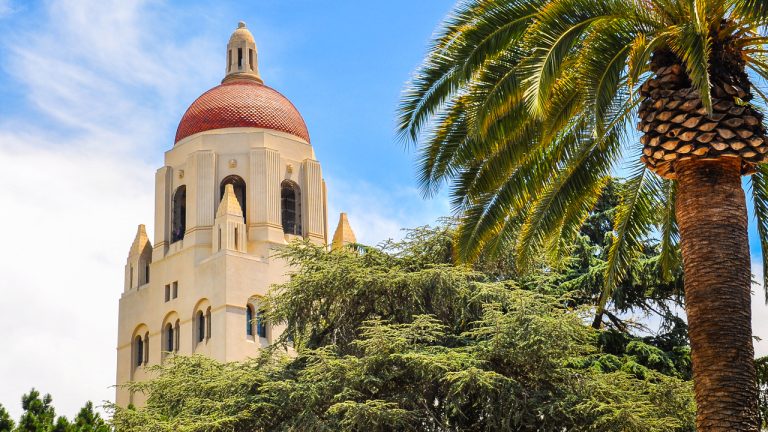
The head of Sam Bankman-Fried’s legal defense admitted the odds of winning the FTX fraud trial were stacked against the former CEO.
The lawyer responsible for Sam Bankman-Fried’s criminal trial defense has admitted that the case was “almost impossible” to win from the outset.
In a one-on-one interview with Bloomberg, Stanford Law School professor David Mills recounts how Bankman-Fried’s reluctance to follow his recommendations and the damning testimony of his former associates had the FTX founder’s back against the ropes.
Related: Caroline Ellison wanted to step down but feared a bank run on FTX
 According to the latest court documents in the fraud case involving former FTX CEO Sam Bankman-Fried in Manhattan, the New York judge presiding over the case unsealed the co-signers of Bankman-Fried’s bond on Wednesday. The names of the two bail bond co-signers that were previously redacted from court documents are Stanford University alumni Larry Kramer […]
According to the latest court documents in the fraud case involving former FTX CEO Sam Bankman-Fried in Manhattan, the New York judge presiding over the case unsealed the co-signers of Bankman-Fried’s bond on Wednesday. The names of the two bail bond co-signers that were previously redacted from court documents are Stanford University alumni Larry Kramer […]
One of the previously undisclosed guarantors of Sam Bankman-Fried’s bond told Cointelegraph why he helped out the former FTX CEO.
A former dean of Stanford Law School who co-signed Sam Bankman-Fried’s bail said he did so because SBF’s parents have been “the truest of friends” and helped his family through a “harrowing battle with cancer.”
In an emailed statement to Cointelegraph on Feb. 16, Larry Kramer said he co-signed Bankman-Fried’s bail as a way to return the favor.
“Joe Bankman and Barbara Fried have been close friends of my wife and I since the mid-1990s,” said Kramer.
He said that over the past two years, Bankman and Fried provided food and moral support while “frequently stepping in at moment’s notice to help” during his family’s battle with cancer.
“In turn, we have sought to support them as they face their own crisis,” he added.
Kramer emphasized that he had not been influenced to act as guarantor by any payments made to him by any FTX-related entity, writing:
“My actions are in my personal capacity, and I have no business dealings or interest in this matter other than to help our loyal and steadfast friends.”
Previous statements by Bankman-Fried reportedly corroborate this claim, with the former FTX CEO said to have denied that either of the two previously undisclosed guarantors had received any payments from FTX or sister-firm Alameda Research.
The names of SBF’s bail guarantors have been released: Larry Kramer, former dean of Stanford Law School, signed for $500K & Andreas Paepcke, computer scientist, signed for $200K.
— Tiffany Fong (@TiffanyFong_) February 15, 2023
In our last conversation, Sam denied that either guarantor has received payments from FTX or Alameda… https://t.co/cJq2Txi5zY
Kramer refrained from commenting on the legal predicament faced by Bankman-Fried, noting that this “is what the trial will be for.”
The other guarantor is Andreas Paepcke, a senior research scientist at Stanford University. He did not respond to questions by the time of publication.
The crypto community has been searching the web looking for more details on Paepcke, but there appears to be little information connecting him to Bankman-Fried outside of their association at Stanford University, where Bankman and Fried used to be law professors.
Via his Stanford bio: "Dr. Andreas Paepcke is a Senior Research Scientist at Stanford University. His interests include user interfaces and systems for teaching and learning. He uses data analytics to create tools that benefit these online efforts." pic.twitter.com/xWEDVeNOId
— Molly White (@molly0xFFF) February 15, 2023
United States District Judge Lewis Kaplan had allowed the identities of the two former law professors to be made public on Feb. 15, after being petitioned by eight major media outlets in a Jan. 12 letter.
Related: Charity tied to former FTX exec made $150M from insider deal on FTT tokens: Report
Bankman-Fried’s lawyers had sought to keep the two anonymous, arguing that the pair could be subject to intrusions, threats and harassment if their names were made public.
Kaplan disagreed, however, noting that the pair had voluntarily signed individual bonds in a “highly publicized criminal proceeding,” and had therefore opened themselves up to public scrutiny.